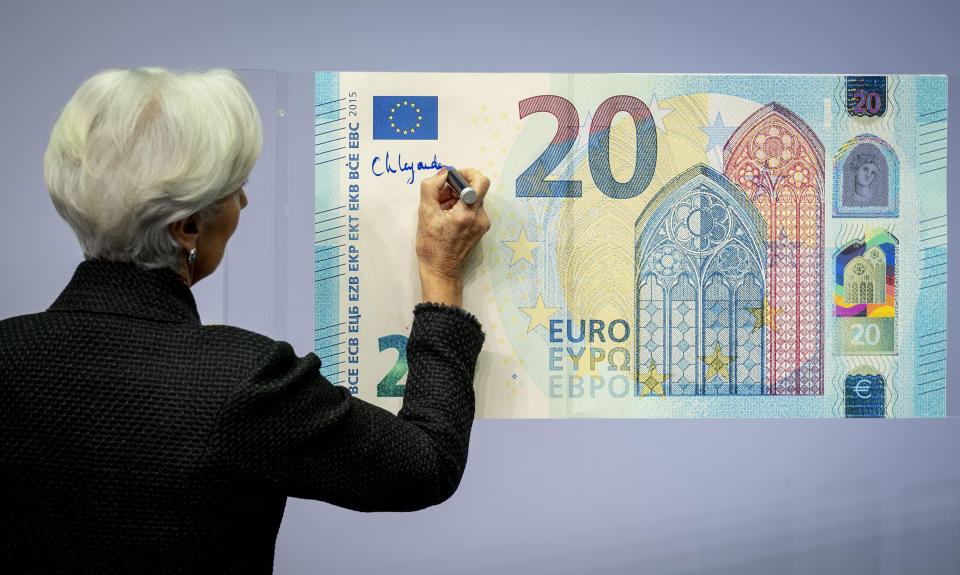ECB debuts €750bn package to support Europe through coronavirus

The European Central Bank (ECB) has announced plans to extend a €750bn (£684bn, $835bn) lifeline to Europe’s businesses and governments to keep them solvent during the coronavirus crisis.
The ECB said late on Wednesday it would launch a new programme dubbed the Pandemic Emergency Purchase Programme (PEPP).
PEPP will allow the central bank to buy up public and private sector securities on flexible terms — effectively offering €750bn to governments and businesses across Europe who need support.
“The Governing Council of the ECB is committed to playing its role in supporting all citizens of the euro area through this extremely challenging time,” the central bank said in a statement.
“To that end, the ECB will ensure that all sectors of the economy can benefit from supportive financing conditions that enable them to absorb this shock. This applies equally to families, firms, banks and governments.”
PEPP will last until at least the end of the year and could stretch beyond if the coronavirus crisis is not over by then.
The total capital available could also be extended, the ECB said. The current €750bn set aside equates to between 6-7% of eurozone GDP, according to Deutsche Bank.
“The Governing Council will do everything necessary within its mandate,” the ECB said. “The Governing Council is fully prepared to increase the size of its asset purchase programmes and adjust their composition, by as much as necessary and for as long as needed.
“It will explore all options and all contingencies to support the economy through this shock.”
PEPP comes on top of €120bn of additional bond purchases announced by the ECB just last week in response to the Covid-19 crisis.
Read more: European stocks gain after ECB announces stimulus package
The new programme comes as governments and central banks around the world rush to put in place emergency measures to support the global economy. UBS said on Tuesday stimulus measures totalling around 0.9% of global GDP had been announced by governments.
Deutsche Bank warned on Wednesday that the world is facing a “severe” recession in 2020, with quarterly falls in GDP on a scale not seen since World War II. Businesses have been forced to shut due to Covid-19 lockdowns, demand is plummeting in industries like travel, and the stock market has been in free fall.
“The program itself is a gigantic prop for core Europe to help it move through the hole in revenue that has started to gap and likely take down some small companies,” said Sebastien Galy, a senior macro strategist at Nordea Bank.
PEPP also follows what many saw as a bungling week for the ECB. Comments made by new ECB President Christine Lagarde on the difference between German and Italian bond yields sparked a sell-off in European government bonds, as investors fretted over a potential repeat of the 2012 eurozone debt crisis.
The ECB subsequently tried to walk back the comments and signify that the ECB would stand behind all eurozone nations at their time of need, but the damage had been done. Carsten Brzeski, chief eurozone economist and global head of macro at Dutch bank ING, said the last seven days had been a “disaster” for the ECB.
“The fact that the Eurozone has finally come to terms with the magnitude of the crisis should cushion the downswing and is an important prerequisite for a swift rebound,” Brzeski said.
But he added: “In the short run, financial markets and the economy will still depend on how the pandemic — and with it the preventive government measures to tackle it — evolve. This will be the main determinant for the depth of the recession.”

 Yahoo Finance
Yahoo Finance 